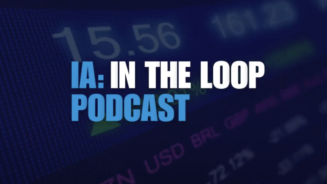How big is HSBC Global Asset Management within the inter-national space?
HSBC Global Asset Management is the investment management business of the HSBC Group, which has an international network of offices in some 30 countries and manages almost $450bn of client assets.
As part of this, our offshore life company business outside the UK – in Asia, the Middle East and continental Europe – is around £1.17bn assets under distribution. We distribute our funds through international life companies and platforms that, in turn, sell to their predominantly expat financial advisers and brokers.
How is your relationship with UK international life companies and platform clients evolving?
"It is in Asia where we see the strongest potential future growth for our offshore business."
Since I started looking after client relationships again late last year, more of our attention has been directed towards Asia.
It is in Asia where we see the strongest potential future growth for our offshore business.
Though the region is likely to see diminished economic growth this year, overall GDP growth is forecasted to be 5.5% in 2015, according to the IMF. This rate is well above forecasted growth in the US and EU.
While we continue to pursue opportunities in the Middle East and continental Europe, a key focus is in Asia, in particular our clients in Hong Kong and Singapore.
How do you select which types of clients to do business with?
The majority of our time is spent serving our existing clients. The nature of our business means we only take on clients who already have relationships with other parts of the HSBC Group, such as our global banking and markets and commercial banking businesses. Working in this way allows us to maintain high standards of client due diligence, since we know our new clients already have a good track record with HSBC.
Much of our business comes from large international life companies that have a sizable client base in the regions where we focus our attention.
Examples would include Zurich International, Old Mutual International, Generali International, Friends Provident International and SEB International, to name a few.
How would you categorise the scale of importance of the different regions to your business model?
Given our background and the potential for further growth, Asia remains the main focus for our offshore life business, followed by the Middle East and then Europe.
In which European markets are you currently seeing the most growth?
Our offshore business comes from countries where we find large numbers of British expats, such as France, Spain, Switzerland and Italy.
How are regulatory changes in the Middle East affecting the way you do business there?
One significant change concerns the United Arab Emirates, where the Securities and Commodities Authority (SCA) has issued new rules on how investment funds should be structured, marketed and sold. Providers need to ensure their funds comply with the new regime.
We view the ongoing changes as positive for the market as a whole. The wealth management and mut-ual fund industry in the UAE is a high-growth area and its success can only be sustained if it operates within a robust regulatory framework and oversight.
The SCA is now working hard to build such an environment.
What challenges do you face in doing business in Asia?
Hong Kong is also seeing a number of important reforms that will affect fund providers.
For example, regulators in Hong Kong and mainland China are undertaking a mutual recognition of funds programme, which would allow retail funds from Hong Kong and mainland China to be sold to investors in both jurisdictions.
The Hong Kong authorities are also considering a new legal, regulatory and tax framework for Hong Kong-domiciled open-ended fund companies.
Some of the recent changes in regulation meant a slowdown in fund flows as a number of providers had to withdraw some products. We are in a more fortunate position compared with some of our competitors. HSBC’s well established presence in Asia and its knowledge and expertise of the region are greatly valued by its clients.
Name a key operational issue you dealt with recently?
One operational question, which is a point of principle, revolves around maintaining high standards of governance in the way we sell our funds. It is the use of soft commission for offshore brokers, which we do not pay.
Many offshore brokers look at the fund group to pay them commission for selling their funds. This is in addition to any rebate the fund management company passes to a platform or life company.
We believe that paying soft commission is not aligned with our core principle of putting the client first, as it does not provide them with better overall value.
Our stance on soft commission means some advisers prefer to go to fund providers that pay it. However, many financial regulators agree with us that, in time, the markets will change the way they operate.




